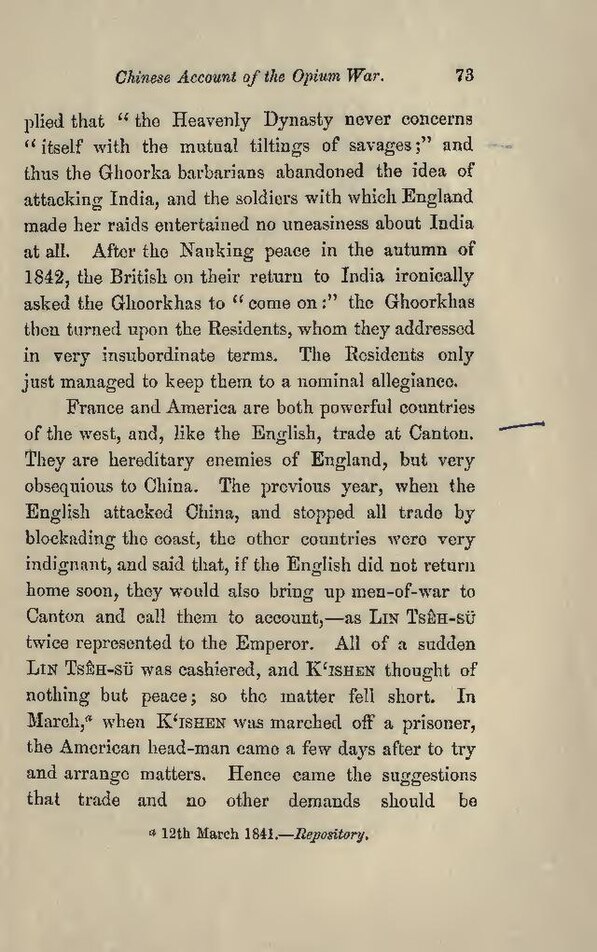plied that "the Heavenly Dynasty never concerns "itself with the mutual tiltings of savages;" and thus the Ghoorka barbarians abandoned the idea of attacking India, and the soldiers with which England made her raids entertained no uneasiness about India at all. After the Nanking peace in the autumn of 1842, the British on their return to India ironically asked the Ghoorkhas to "come on" the Ghoorkhas then turned upon the Residents, whom they addressed in very insubordinate terms. The Residents only just managed to keep them to a nominal allegiance.
France and America are both powerful countries of the west, and, like the English, trade at Canton. They are hereditary enemies of England, but very obsequious to China. The previous year, when the English attacked China, and stopped all trade by blockading the coast, the other countries were very indignant, and said that, if the English did not return home soon, they would also bring up men-of-war to Canton and call them to account,—as LIN TSÊH-SÜ twice represented to the Emperor. All of a sudden LIN TSÊH-SÜ was cashiered, and K'ISHEN thought of nothing but peace; so the matter fell short. In March,[1] when K'ISHEN was marched off a prisoner, the American head-man came a few days after to try and arrange matters. Hence came the suggestions that trade and no other demands should be
- ↑ 12th March 1841.—Repository.
